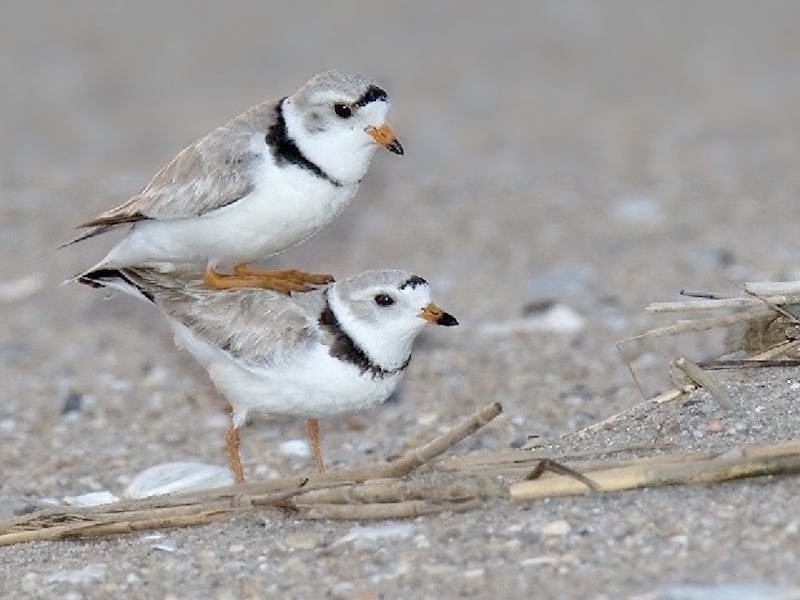
Imagine a world where everyone used Tinder but nobody used birth control: If the results of a new study are any indication, this nightmare scenario would slow the evolution of the human race to a crawl. Hookup culture in birds, researchers recently wrote in the journal Evolution, has caused them to evolve much more slowly than expected, and their example may serve as a model for all species. If there ever was a downside to polygamy, this is it.
The purpose of the study, carried out by an international team of biologists led by graduate student Josie D’Urban Jackson at the University of Bath, was to find out how the sexual habits of birds affected speciation — that is, their ability to become so genetically diverse that eventually a new species would branch off from the original population. So, they followed 79 different populations of plovers — a large family of small, spindly-legged birds that hang out on shores around the world — took some DNA samples, then noted whether they were faithful lovers or promiscuous. Their analysis yielded an unexpected result.
These ploves ain't loyal.
The scientists wouldn’t have guessed that polygamy would slow down speciation, but it did. As study co-author Tamás Székely, Ph.D., told The Independent, “We’re very excited about these findings as this theory completely overturns conventional wisdom.” She’s referring to the general belief that sexual selection — the existence of pickier lovers — promotes speciation because it magnifies certain traits over time. So, if one group of plovers selectively seeks out mates that have plump white chests, it should be more likely that a fully white-chested species would emerge more quickly than it would if the plovers were all screwing around with each other. But as they found, being polygamous actually slows speciation down because it shakes up the gene pool up so much that it takes longer for distinct patterns to emerge.
The plover DNA showed that the polygamous birds had less genetic structure — that is, more random-looking gene pools — than their monogamous counterparts, which means that there were no genetic patterns that might lead to the creation of a new species. Furthermore, the effects of geography on speciation didn’t matter as much, which was especially odd: Normally, cutting a group off from the main population and waiting a couple thousand generations will turn them into a new species, but it seemed that the polygamous plovers, horny for new mates, traveled far from home and spread their genes out in the process, thus slowing down speciation.
Biologists generally believe genetic diversity is a good thing. Having lots of different genes in a gene pool means that, when a disease ravages a population, only some of them will die, while the others will survive and pass on their disease-immune genes to the next generation (This is, roughly, why incest is bad.) The plover study isn’t by any means definitive because it’s small and looks only at one species, but it does point out something unexpected making new species as well as force us to ask: Do we want that anyway?
Whether humans are evolving into a new species is still up for debate — and whether it matters for our survival is equally controversial — but on the off chance that we are, it looks like we’re not exactly speeding up the process by sleeping around.